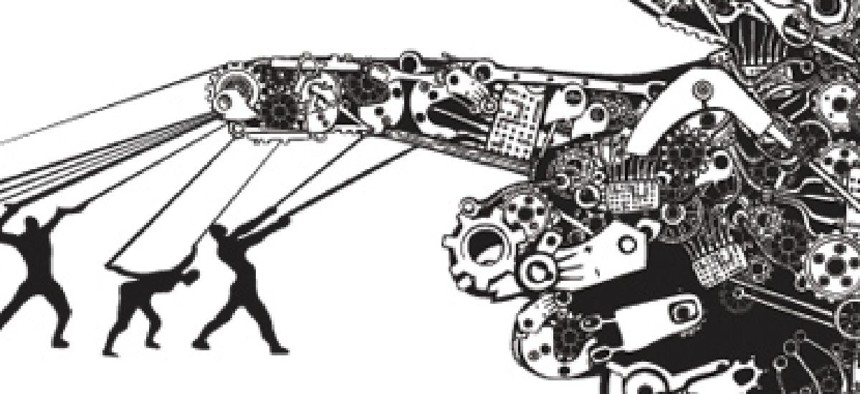'Policy' and 'operations': Don’t choose one over the other

Steve Kelman argues that government needs more leaders with experience in both areas.

A few days ago my wife sent me a copy of a story about the resignation of the recently appointed governmentwide category manager for IT and his replacement by Mary Davie, who had been serving as Assistant Commissioner for the GSA Integrated Technology Service (and was the Fed 100 Eagle Award winner for government this year). It was one line in the report that caught my wife's attention: "OMB's decision to name Davie is logical, but could also raise concerns about having an operational person running the policy side too." She sent me an email asking: "Who created this either/or divide?"
Davie is an outstanding procurement professional and career public manager, and so is a great choice. But I dispute the characterization of her job description as involving "policy" rather than "operations." To be successful as a category manager, one needs more than procurement policy expertise. Choosing the right policies about when to use the kinds of centralized contracts the category manager policy favors is at best half the battle.
Past experience, in this and other areas, makes clear that policy directives from the Office of Management and Budget are not necessarily followed. A successful category manager should know about ways, from OMB's perch, to encourage organizational change in the agencies, including how to gain more buy-in for the policy itself. The manager must have good listening and conflict resolution skills, to understand better what kinds of management challenges in the agencies the policy creates and to know, based on knowledge of the agencies and the career procurement and program management workforces, when the policy should be modified or tweaked.
As I stated in a recent interview with a team working on an OMB transition report to be directed at the next administration, when I was administrator of the Office of Federal Procurement Policy during the first Clinton administration, I saw it one aw of my strategic objectives to move OFPP, as I put it, further "downstream" in the procurement process. By that I meant that OFPP needed to worry about how one changed procurement practice, not just what directives appeared on a piece of paper. The problem with OFPP was that it traditionally had felt the job was done once a policy was issued.
More generally, if any policy needs to be implemented inside government organizations (or through contracts), the policy is not self-executing; good management is necessary. And if a policy needs individuals outside government to change their behavior, government needs to be good at what is often called "policy design," a sort of hybrid of policy and management skills that means setting up the policy in such a way, through incentives or otherwise, that encourages the behavior change the policy seeks.
We need more appreciation in government for the roles of both policy and operations in creating a government that serves people. All too often in government, appreciation for the role of operations is lacking. Policy jobs are often seen as the glamorous ones, while operations often gets no respect. As a result of this, many policy people may ignore questions of operations when they design policies. If they do, government won't work well.
Think of former Federal Reserve Chair Paul Volcker, one of the great economic policymakers of his generation. What did he do when he was looking for a capstone to his career? He established the Volcker Alliance, designed to promote good government management, with the mantra (taken from Thomas Edison) that "vision without execution is hallucination."
Surely policy and operational skills are somewhat distinct. It is inevitable there will be some division of labor between people concentrating on the two kinds of work. But we shouldn't let a division of labor degenerate into "policy" and "operations" stovepipes, especially ones where each group ignores or disses the other.
Instead, our goal should be at a minimum to give both groups an appreciation for the role and importance of the other. Operations people should understand the key role of policy work in drawing conclusions about which direction they should be moving, and to use those policy conclusions to help them understand better what they need to do operationally. Policy people should understand the key role of operations work in getting the ship there.
Rather than worrying about appointing Davie to her new post, we should be looking for more opportunities to give "operations" people like her experience at "policy" jobs, and vice versa. Government would be the better for this.
NEXT STORY: Google legend joins Defense Digital Service


